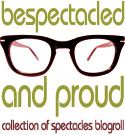Once a year at work at my old position in Nashville, without fail, we would receive a bundle of phone books -- one for pretty much every phone we had in the office, which outnumbered people like five to one. And those phone books stayed bundled in their plastic wrap pretty much until the next bundle arrived a year later and someone finally decided they should be tossed.
Cause really, who uses hard copy phone books anymore? That's what Google is for.
I think our office manager called the phone company to try to tell them we didn't need any more phone books, but I'm pretty sure that didn't stop them from coming.
Well, a project called Yellow Pages Goes Green makes it very, very simple to opt out. Click here for the form to opt your address out of receiving books ... you can select yellow pages, white pages or both.
And if you need some more motivation than just not wanting those wieldy books around your house, consider this from Yellow Pages Goes Green:
To produce the 500 million books distributed annually:
- 19 million trees need to be harvested
- 1.6 billion pounds of paper are wasted
- 7.2 million barrels of oil are misspent in their processing (not including the wasted gas used for their delivery to your doorstep)
- 268,000 cubic yards of landfill are taken up
- 3.2 billion kilowatt hours of electricity are squandered
(Cheers to Cool People Care)
UPDATE: Ken, who appears to be commenting on behalf of the phone book industry, wants to clarify the source of the paper for the phone books:
"Currently, on average, most publishers are using about 40% recycled material (from the newspapers and magazines you are recycling curbside), and the other 60% comes from wood chips and waste products of the lumber industry. If you take a round tree and make square or rectangular lumber from it, you get plenty of chips and other waste. Those by-products make up the other 60% of the raw material needed. Note that these waste products created in lumber milling would normally end up in landfills."
That's certainly good to know, but I shall add my own additional 2 cents in saying that it still takes resources to package and ship these books, which judging by the other comments, some people don't want in the first place. I imagine the recycled material could be repurposed into another paper product.









13 comments:
Great idea! Sadly we don't get this in Canada until next year but they drive me bonkers dropping them off - ours go straight into the recycling bin!
Thank you thank you thank you for posting this. I just had two phone books left in my driveway by the same exact company. Thanks, Verizon. I don't use them at all, I certainly don't need two!
Nice. Thanks for the link. I hope it's becomes as effective as the do-not-call list. Now if I can get them to do something about the newspapers that keep piling up on my front door. My life would be incomplete without this blog.
I need to do this. We have a circular driveway, so we get twice as many phone books dropped off. We then end up with four phonebooks (two Yellow Pages and two White Pages) to haul to the recycling center. Very annoying.
I aim to please.
I used to always recycle mine at McDonalds, where they'd give me a free small fry for doing so. I don't know if they still do that though.
If you don't find the print books of value that's a shame but you should also know that some of the information you have been reading is not correct.
While the popular myth is that the industry is neutering forests all over the world for its paper, the reality is the Yellow Pages industry doesn’t knock down any trees for its paper!!! Let me repeat that – they don’t need to cut any trees for their paper supply. Currently, on average, most publishers are using about 40% recycled material (from the newspapers and magazines you are recycling curbside), and the other 60% comes from wood chips and waste products of the lumber industry. If you take a round tree and make square or rectangular lumber from it, you get plenty of chips and other waste. Those by-products make up the other 60% of the raw material needed. Note that these waste products created in lumber milling would normally end up in landfills.
For more information go here: http://www.yptalk.com/production.cfm
Ken: thanks for the comment and the info. I will update the post to reflect your information about the source of the material.
I would still argue that it takes energy to turn those resources into paper and plastic to wrap those books, which are then shipped to many people who don't use them. I find it much less time consuming to use online directories. And I would also imagine that there are other uses for these items that you say might otherwise go to waste if they weren't used to make phone books.
Thanks MG! We used to get about twice as many phone books at the office as we had people. I feel like they give you as many as possible so they can up the circulation numbers they give out to advertisers.
KG
I got our phone book the other day, despite opt out efforts. Grr. Guess I'm turning it into kitty litter.
Thanks! I've always wished this was an option. I'll post this on my blog if that's OK. Also, drinking out of the mug now! Thanks!
Thanks for that link. I've done it.
Thanks for highlighting this. I'm glad we could provide the big idea. I think most people simply don't want or need all those phone books. It's great that they're made from recycled material, but you're right - the production of the books does require resources and energy. And, it's all for naught if the books are never used.
Great post!
FYI, this "opt out" isn't tied to the phone companies at all. I figured that out when I received my phone books regardless of having signed up ages ago. Then, when I went to the YellowGoesGreen site, in the FAQ, I saw that the site is a type of petition against phone companies sending their books out unsolicited. The site owner intends to turn this into a petition to send them, hoping that they will in turn change their practice.
You will, every one of you, still get those phone books. Signing the petition of sorts, however, cannot hurt, right?
Post a Comment